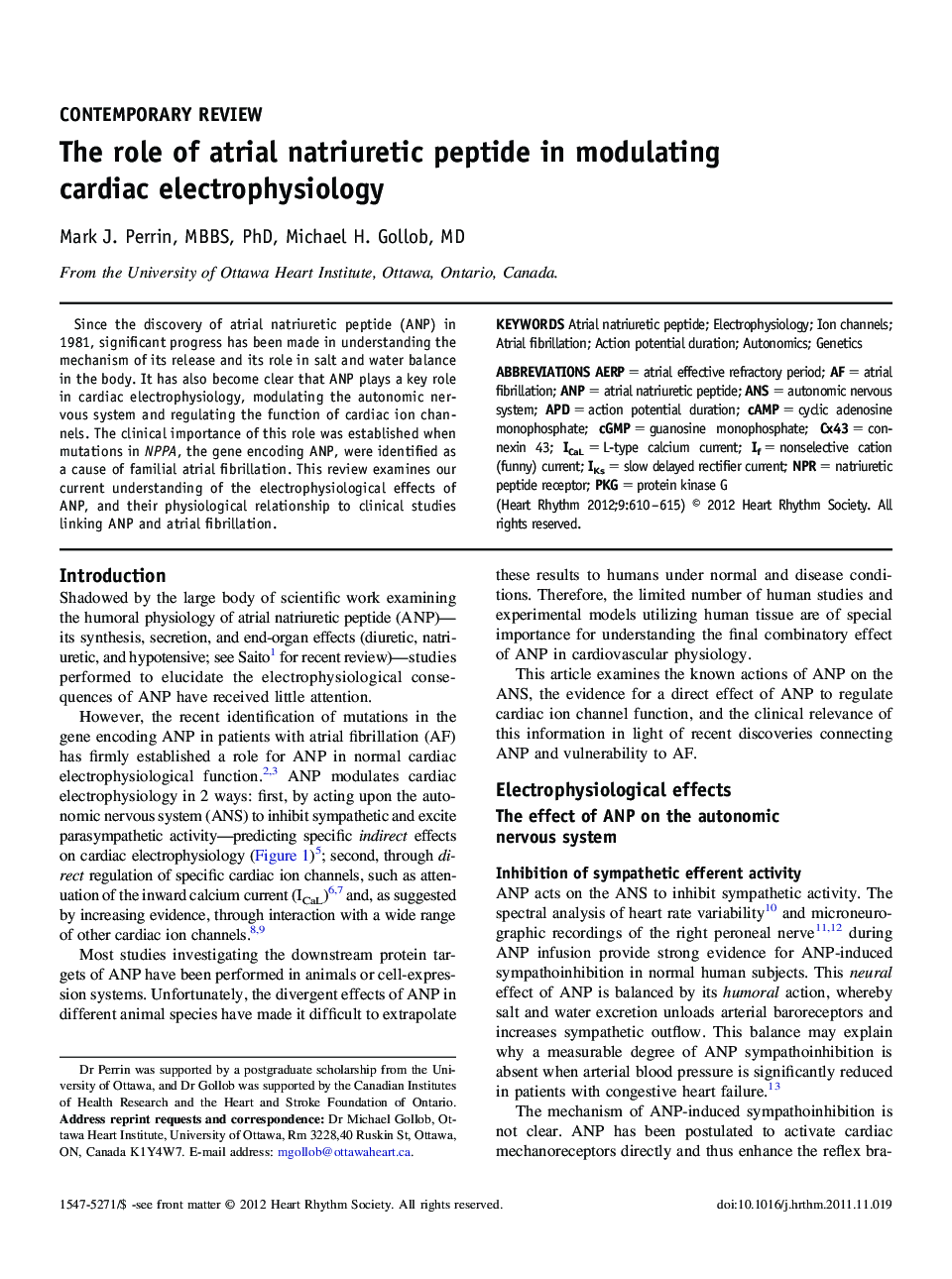| Article ID | Journal | Published Year | Pages | File Type |
|---|---|---|---|---|
| 2923142 | Heart Rhythm | 2012 | 6 Pages |
Abstract
Since the discovery of atrial natriuretic peptide (ANP) in 1981, significant progress has been made in understanding the mechanism of its release and its role in salt and water balance in the body. It has also become clear that ANP plays a key role in cardiac electrophysiology, modulating the autonomic nervous system and regulating the function of cardiac ion channels. The clinical importance of this role was established when mutations in NPPA, the gene encoding ANP, were identified as a cause of familial atrial fibrillation. This review examines our current understanding of the electrophysiological effects of ANP, and their physiological relationship to clinical studies linking ANP and atrial fibrillation.
Keywords
Related Topics
Health Sciences
Medicine and Dentistry
Cardiology and Cardiovascular Medicine
Authors
Mark J. Perrin, Michael H. Gollob,
